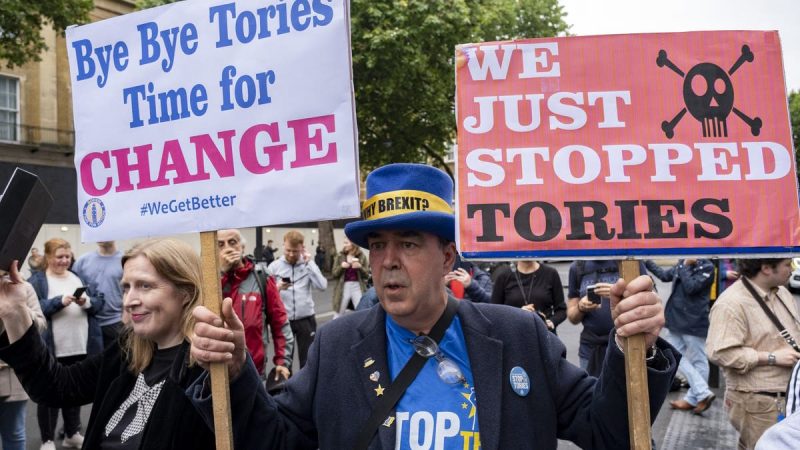Many analysts assert that the rise of populist, right-wing movements are threatening democracy. But based on my recent travels overseas from the Middle East to western and central Europe, I believe that the election results reflect not so much a popular swing to the right, but rather, a growing frustration with incumbent governments.
True, the populist right has made inroads. Europe’s first populist pioneer, Hungary’s Viktor Orban, has won four consecutive elections as prime minister since his initial victory in 2010. Since then, he has transformed Hungary into what he has called an ‘illiberal democracy,’ but what the European Parliament has denounced as an ‘electoral autocracy.’
In Italy in 2022, the right-wing populist Brothers of Italy won the highest vote share of any single part in the nation’s national election, propelling to power as prime minister its leader, Giorgia Meloni. In those national elections, four-in-ten Italian voters cast their ballots not just for the Brothers, but for the other two major right-wing parties, Forza Italia and Lega, up a third from the last election in 2018.
In sanctimoniously liberal Sweden, the right-wing Sweden Democrats emerged in 2022 as the second most popular party, the culmination of steady growth over the last six parliamentary elections and the near doubling of their vote share since the 2014 election. In the Netherlands in 2023, the victory of Geert Wilders’ far-right, anti-immigration Party for Freedom shocked much of Europe.
Right-wing parties in Spain, the birthplace of fascism, and Germany – yes, Germany – have also steadily gained ground. The ‘Alternative for Germany,’ the AFD, once considered taboo in light of German history, has recently won local elections in the country’s east and is now polling in second place nationally, tied with the Social Democrats, Germany’s main leftist party.
Sparked by widespread anti-immigrant sentiment and fury over rising prices, the success of these right-wing parties in Europe has prompted some pundits to predict that Donald Trump will reclaim the presidency in November.
But there is also reason to believe that the election results reflect not so much an ideological swing to the right, but rather, a surge in anti-incumbency sentiment. Consider the recent elections in the U.K., France and Iran.
Earlier this month, the British, fed up with 14 years of conservative Tory misrule, gave Kier Starmer’s Labour Party a massive majority and Prime Minister Rishi Sunak’s Conservatives a historic defeat. Acknowledging the widespread desire for change, Sunak did not dwell on another reason for the Tory’s weakness – the relative success of Nigel Farage, the right-wing, anti-immigrant disruptor.
Farage’s Reform party candidates, including Farage, won five Parliament seats that might well have gone to Sunak’s party, along with 14% of the national vote. But Labour trounced both of them, winning 410 of the 650 seats in parliament, an astonishing reversal of political fortunes from five years earlier when the socialists suffered their worst defeat since 1935.
In France, voters delivered an equally stunning setback to Marine Le Pen’s right-wing National Rally, which pollsters had predicted would handily win the second round of the snap election that President Emmanuel Macron had called. But the RN came in third, as voters rejected both the populist right and Macron’s own party, endorsing instead a disputatious left-led alliance.
In Iran this month, voters turned out massively to reject the theocracy’s hard-line candidate, Saeed Jalili, who had won 44.3% of the votes in the election’s first round. In the second round, 49.8 % of registered voters endorsed the reformist candidate, Masoud Pezeshkian – a resounding defeat for the Supreme Leader Ayatollah Sayyed Ali Khamenei and his sclerotic authoritarian regime. The desire for change, especially among young Iranians, was palpable.
In all three contests, voters rejected the right but opted for change.
If, in fact, Americans share Europe’s and Iran’s anti-incumbent instincts, Trump might well be propelled to a landslide victory in November – particularly after the failed assassination attempt. Trump, a convicted felon, could well win despite his nostalgic slogan: Make America Great Again, Again.
While many Democrats sensed the widespread yearning for change at the top of their own presidential ticket, President Biden’s protracted resistance to withdrawing from the race has cost his party time, money and momentum. Despite the fact that he had been trailing Trump in the polls for months, long before his disastrous debate, Biden’s refusal to honor his initial campaign pledge to step aside after one term, and his adamant insistence that only he could defeat the MAGA candidate, threw his party into turmoil.
Now that he has been forced to withdraw by colleagues who persuaded him that his name on the ballot would likely cost Democrats control of both the House and the Senate, Democrats have been scrambling to chart a winning course with Vice President Kamala Harris or another plausible, but unlikely alternative as their nominee. But now, at last, Americans may finally have the choice so many want — two versions of change, rather than the more conventional choice of incumbent versus challenger that Biden’s nomination would have ensured.

